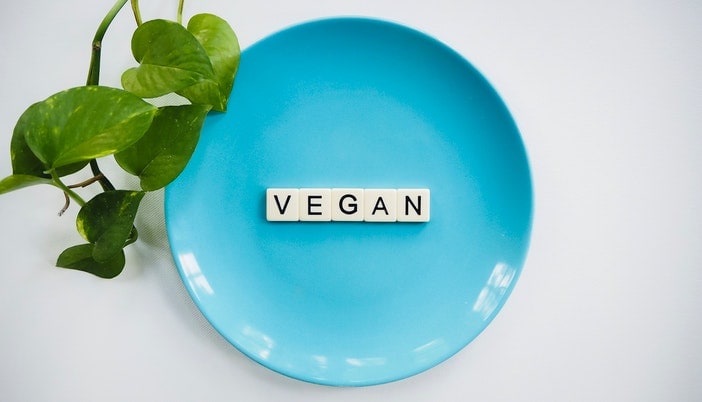All The Vegan Omega 3 Supplements You Can Find In The UK
Many people have sought the well-known benefits of fish oil supplements such as Omega 3 and Cod Liver Oil over the years, and recently health companies such as Holland & Barratt have released vegan versions of fish oil supplements for those following a plant-based diet.
As an Amazon Associate, I earn from qualifying purchases. The links below may be affiliate links. Please read my disclosure policy for more information.
The Benefits of Omega 3
Regular consumption of the vitamin Omega 3 has many health benefits, including:
- Helps fight mental health disorders such as anxiety and depression
- Improves eye health by preventing degeneration that leads to sight loss
- Improves overall brain health, including memory
- Helps young children with brain health and growth
- Reduces the risk of heart disease
- Reduces the chance of ADHD in children
- Reduces the symptoms of Metabolic Syndrome
- Fights inflammation
- Fights autoimmune diseases, such as Multiple Sclerosis and Fibromyalgia
- Can fight cognitive decline disorders such as Alzheimer’s and Dementia
- Helps prevent various cancers
- Can reduce asthma in children
- Can reduce the level of fat within the liver
- Can improve bone and joint health
- Can alleviate menstrual pain
- May improve the quality of your sleep
- Has many benefits for the skin
- Encourages hair growth/can prevent hair loss
- Can lessen the risk of a stroke
- Reduces the risk of Atopic diseases
- Can prevent the risk of Diabetes
- Can help maintain healthy nails
What is Omega 3
Omega−3 fatty acids, also called Omega-3 oils, ω−3 fatty acids or n−3 fatty acids, are polyunsaturated fatty acids (PUFAs) which are characterised by the presence of what is called a ‘double bond’ (three atoms away from the terminal methyl group in their chemical structure).
They are widely distributed in nature, and they play an important role in the human diet and in human physiology. The three types of omega 3 fatty acids involved in human physiology are α-linolenic acid (ALA), eicosapentaenoic acid (EPA) and docosahexaenoic acid (DHA).
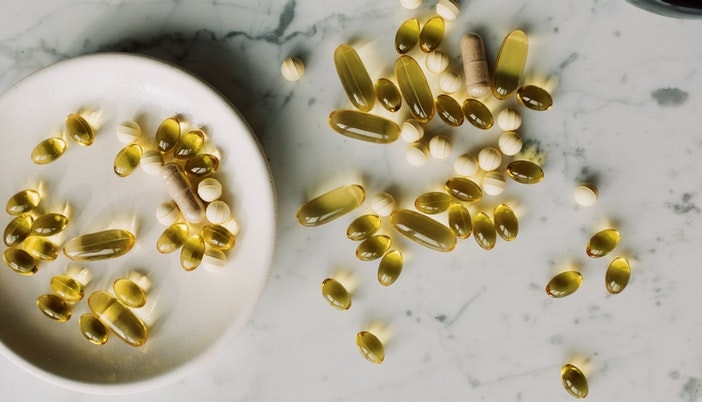
ALA can be found in plants, while DHA and EPA are found in algae and fish. Marine algae and phytoplankton are primary sources of omega 3 fatty acids.
This is why one of the commonest ways to consume Omega 3 is through fatty fishes (such as salmon and mackerel) or through fish oil capsules.
The History of Omega 3 in Human Health
Omega 3 fatty acids have been known as essential to normal growth and health since the 1930s, awareness of their health benefits radically increased in western culture circa the 1980s. This was predominantly down to their proven benefits for bone and joint health.
In 2004, the U.S. Food and Drug Administration gave “qualified health claim” status to EPA and DHA omega 3 fat, stating, “supportive but not conclusive research shows that consumption of EPA and DHA [omega 3] fatty acids may reduce the risk of coronary heart disease”.
This was updated and modified in their health risk advice letter of 2001. Numerous other benefits have since been added to the list of why we should consume Omega 3.
Historically, whole food diets contained sufficient amounts of omega 3 because it is a very natural and available resource, but because omega 3 is readily oxidised, processed foods has led to a deficiency in omega 3 in manufactured foods.
How is Omega 3 Sourced?

Omega 3 fatty acids are formed in the chloroplasts of grass, leaves, green algae, and other plants – both land and sea-borne.
Humans, animals, and fish cannot produce their own omega 3s. So instead, we must source them from greenery.
For us humans, research suggests the best omega 3s that we can get have already been eaten by fish and converted into a type that we can best use for eye, brain, and heart health – hence why fish oil is so popular.
Omega 3s are a family of polyunsaturated fatty acids, meaning there are many types of omega 3s, and their exact chemical composition varies by type.
Your body needs a certain amount of acidic fat for energy, for protecting organs, and for cell growth. Omega 3s, however, are fats that your body does not store. Instead, it uses them almost exclusively for brain and eye function.
Vegan Omega 3 Sources Available in the UK
With the many proven health benefits as Omega 3 can provide, it is great news that there are numerous cruelty-free options. These include foods such as:
Algae
The DHA found in oily fish comes from algae that’s eaten by the fish, so it makes sense that a good way to consume DHA without consuming animal products would be to go straight to the source and incorporate algae into our diets.
Seaweed is a readily available (and delicious) source of cruelty-free DHA. You can also purchase sea kelp capsules from retailers such as Holland & Barratt, which are completely vegan.
Flaxseeds
Flaxseed is one of the best sources of ALA. A daily dose of ALA from flaxseeds has been found to reduce inflammation in the blood, as well as keeping your blood pressure down.
Chia Seeds
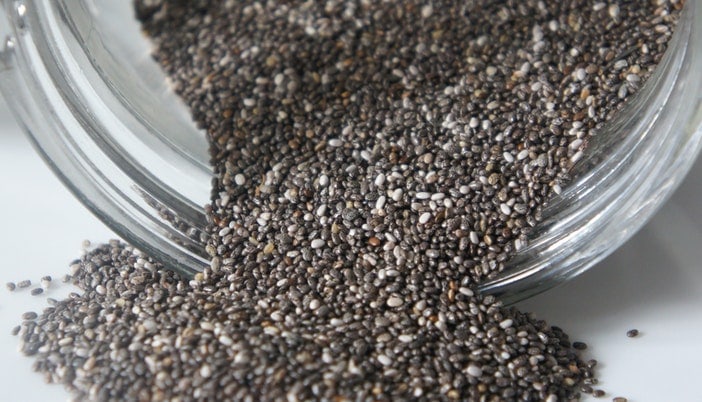
Chia seeds have been recognised as being another good source of ALA (as well as multiple other nutrients).
Researchers in the United States discovered that eating ground chia seeds every day for seven weeks increased levels of EPA in the blood by up to 30%. Chia seeds are also great for people with Type-2 Diabetes, as they lower blood sugar levels.
Echium Seed Oil
Echium seed oil is unusual because it contains high levels of GLA (gamma-linolenic acid) and SDA (stearidonic acid), as well as ALA. GLA is an Omega-6 fatty acid with anti-inflammatory properties.
It works well with Omega-3 to balance the inflammatory effects of other Omega-6s.
However, SDA doesn’t need to be converted, so echium seed oil is better than flaxseed oil at boosting levels of EPA in the body. This makes it a great alternative to fish oil for vegetarians or vegans (or those not partial to the taste of oily fish!)
Echium seed oil also contains an Omega-9 acid called oleic acid, which isn’t found in fish oil, and may help lower bad cholesterol, as well as improve insulin sensitivity and circulation (so, another good dietary component for people with Diabetes).
Walnuts
Walnuts are an excellent source of ALA. As one of the best plant food sources of Omega-3, just 200g of walnuts contains 2.2g of ALA.
And not at the expense of animal cruelty!
You can also increase your ALA levels by using walnut oil within your cooking or by simply drizzling it on top of your salads for another healthy hit of plant-based ALA.7
Edamame Beans
Edamame beans, also known as soybeans, are another good source of plant-based Omega-3 fatty acids.
Edamame beans are rich in protein (8g in a half cup) and fibre (4g in a half cup), making them an ideal healthy snack.
Kidney Beans
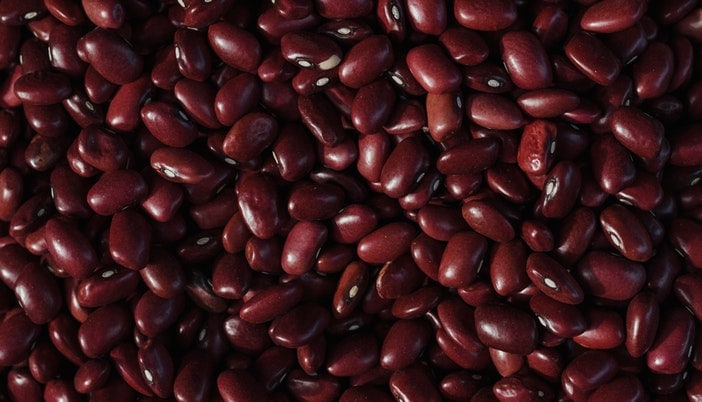
After edamame beans, kidney beans are another valuable source of plant-based Omega-3 fatty acids.
They may be one of the lower sources of plant-based Omega-3, containing around only 10% of your RDI (recommended daily intake), but they’re still worth adding to your diet.
They’re full of protein and fibre, and contain both iron and folate too, two minerals that are essential for pregnant women. They’re good for gut health too.
Canola Oil
While some vegans avoid canola oil due to the reports of it being similar to palm oil in terms of sustainability, one tablespoon of canola oil contains 1.28g of Omega-3.
And unlike other types of vegetable oil, it has a neutral flavour (so it can be great when used as a cooking oil). It is also low in saturated fat and contain Vitamins E and K.
Use it as a vinaigrette or to oven-roast your Omega-3-rich vegetables to ensure you’re getting your RDI.
The Best Vegan Fish Oil Supplements
While vitamin and mineral supplements should never be substituted for a healthy and varied diet, there are now several vegan fish oil supplements available on the UK market.
These include:
- Pharma Nord Omega 7 Sea Buckthorn Oil 60 Capsules
- Together Natural Algae DHA Omega 3 30 Softgels
- Holland & Barrett Flaxseed Oil 500ml
- Holland & Barrett Flaxseed Oil Vegi 60 Capsules 500mg
- Holland & Barrett Vegan Algal Oil Omega 3-6-9 30 Capsules
- Performance Lab Omega-3
- Dr.Vegan Vegan Omega 3
- Feel Algae Omega 3
- Hello Day Brain & Heart Maintain Vegan Omega 3
- Vegums Fish-Free Omega 3
Vegan Omega 3 vs. Animal Omega 3
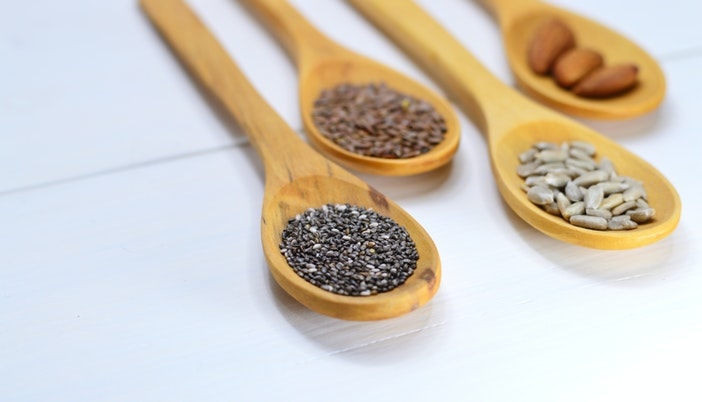
As we’ve discovered, Omega 3 comes in several different forms, including both animal and plant-based sources, meaning everyone (whether carnivore or herbivore!) can have access to the vital nutrients.
As each one has a different structure and is broken down differently in the body, depending on what the source of it is. This means one size doesn’t fit all.
Nuts and seeds, especially walnuts, flaxseeds and chia seeds are rich in ALA, while algae contain EPA and DHA.
Other Vegan Food Sources of Omega 3
- Green bell peppers
- Red bell peppers
- Cooked kale
- Edamame beans
- Brussels sprouts
- Cauliflower
- Kimchi
- Broccoli
- Spinach
- Globe or French artichokes
- Green cauliflower
- Leeks
- Courgette
- Bok Choy
- Pumpkins
How Often Should I Take Omega 3 Supplements?
This can depend on several factors, including your age, gender, whether or not you are pregnant or breastfeeding, and the strength of the particular supplement brand you’ve purchased.
All vitamin and mineral supplements will advise on dosage on the product packaging, so always read the label. Otherwise, your GP or a nutritionist will be able to advise you further.
Omega 3 Side Effects

Like many vitamins, minerals, and pharmaceuticals, there is a chance of side effects; particularly if you have exceeded the recommended dosage.
Some of these side effects include:
- Unpleasant tastes (particularly if taking fish supplements)
- Bad breath
- Headache
- Heartburn
- Nausea
- Diarrhoea
- Bad-smelling sweat
People who are at risk from blood clots (such as sufferers of Deep Vein Thrombosis) should seek advice from their doctor before taking the supplements.
Conclusion
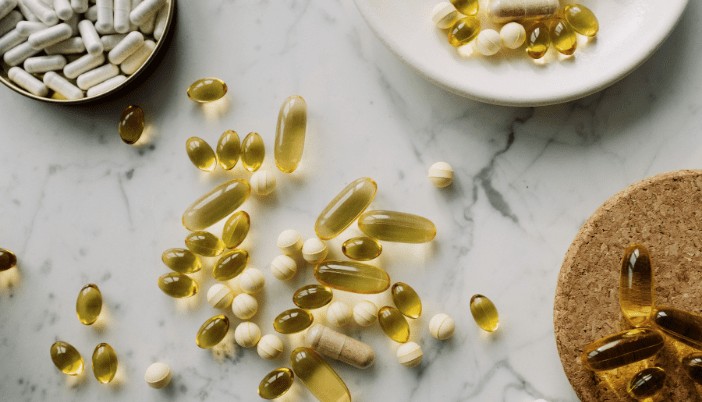
So, we have established that Omega 3, whether sourced by way of food or through supplements, have many proven benefits and have been regularly encouraged as part of a healthy diet since the 1930s.
Some of these benefits include increased joint and bone health, preservation of healthy retinas, decreased chance of cognitive decline, support within mental health disorders, such as anxiety and depression, and the decrease of various heart-related issues (such as lessening the risk of heart disease).
However, as more and more people opt for a vegan lifestyle or a plant-based diet, the incorporation of fish oil into their system is no longer an option.
Luckily, there are multiple ways to include vegan Omega 3 sources into your diet, including through foods like bell peppers, walnuts, green cauliflower, and flaxseeds.
Also, many health companies like Holland & Barratt have created their own supplements of Omega 3 that contain no traces of animal compounds. There are numerous options available on the UK market to suit every type of budget.
We have learnt that Omega 3 has multiple health benefits, whether consumed by way of fish oil or through vegan foods or supplements.
The recommended daily dose of Omega 3 depends on several factors, such as age, gender, whether pregnant or breastfeeding. People with health issues that could result in blood clotting (such as Deep Vein Thrombosis) should seek medical advice before consuming Omega 3 fat products.
Omega 3 can come with a few uncomfortable side effects, such as headache or bad breath, but generally the pros hugely outweigh the cons. If supplements hold now appeal, Omega 3 can be found in many vegetables, so a healthy and natural diet can ensure you are getting plenty into your system.





